|
Books Should Be Free Loyal Books Free Public Domain Audiobooks & eBook Downloads |
|
|
Books Should Be Free Loyal Books Free Public Domain Audiobooks & eBook Downloads |
|
Poetry |
|---|
Book type:
Sort by:
View by:
|
By: William Shakespeare (1564-1616) | |
|---|---|
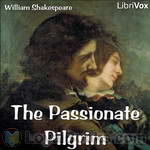 The Passionate Pilgrim
The Passionate Pilgrim
The Passionate Pilgrim was published by William Jaggard, later the publisher of Shakespeare’s First Folio. The first edition survives only in a single fragmentary copy; its date cannot be fixed with certainty since its title page is missing, though many scholars judge it likely to be from 1599, the year the second edition appeared with the attribution to Shakespeare. This version of The Passionate Pilgrim, contains 15 romantic sonnets and short poems. The works contained, while disputed as to authorship are in this writer’s most humble opinion, among the best of the age. | |
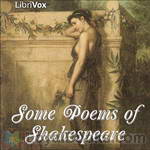 Some Poems of Shakespeare
Some Poems of Shakespeare
A selection of Shakespeare’s poems from The Oxford Book of English Verse: 1250–1900. | |
By: Thomas Babington Macaulay | |
|---|---|
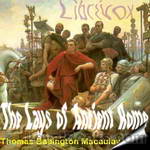 The Lays of Ancient Rome
The Lays of Ancient Rome
The Lays of Ancient Rome comprise four narrative poems comprised by Lord Thomas Babington Macaulay: recalling popular episodes from Roman historical-legends that were strongly moral in tone: exemplifying Roman virtue against Latine perfidy.The four poems are:- Horatius - Horatius and two companions seek to hold back a large invading Etruscan force at the far end of a bridge over the Tiber River. The trio are willing to lay down their lives so as to prevent the Etruscans crossing and sacking the otherwise ill-defended Rome: it is a desperate gamble to buy enough time for the Romans to destroy the bridge in advance of the hostile army... | |
By: Robert Louis Stevenson (1850-1894) | |
|---|---|
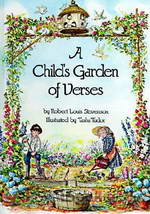 A Child's Garden of Verses
A Child's Garden of Verses
Beloved by many generations of children, A Child’s Garden of Verses is a beautiful collection of children’s poetry. Sometimes thoughtful, sometimes whimsical, but always fun. | |
 Not Yet my Soul
Not Yet my Soul
15 recordings of Not Yet my Soul by Robert Louis Stevenson. This was the Fortnightly Poetry project for May 19, 2013.Robert Louis Balfour Stevenson (13 November 1850 – 3 December 1894) was a Scottish novelist, poet, essayist, and travel writer. His most famous works are Treasure Island, Kidnapped, and Strange Case of Dr Jekyll and Mr Hyde.The following poem comes from his collection entitled Underwoods, first published in 1887. | |
By: Thomas Hardy (1840-1928) | |
|---|---|
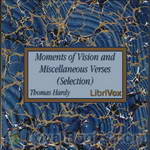 Moments of Vision
Moments of Vision
Hardy claimed poetry as his first love, and published collections until his death in 1928. Although not as well received by his contemporaries as his novels, Hardy’s poetry has been applauded considerably in recent years. Most of his poems deal with themes of disappointment in love and life, and mankind’s long struggle against indifference to human suffering. | |
 Wessex Poems
Wessex Poems
A collection of poetry by Thomas Hardy, some of which were previously published or adapted into his prose works. | |
By: Homer | |
|---|---|
 The Odyssey
The Odyssey
A wandering king who's a war-hero doomed to roam the earth by a vengeful God, a plethora of fantastic experiences, a wife battling the invasion of suitors who wish to replace her missing husband, a son in search of his father - the Odyssey is a rich tapestry of incredible experiences and unforgettable characters. A must-read classic for anyone who wants to understand the fundamentals of Western mythology, it is a sequel to the Illiad which recounts the magnificent saga of the Trojan War. The Odyssey continues on, describing the trials and tribulations of the Greeks under the leadership of Odysseus... | |
By: Rudyard Kipling (1865-1936) | |
|---|---|
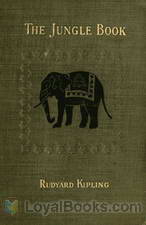 The Jungle Book
The Jungle Book
Originally written for his young daughter Josephine, who died tragically aged six, The Jungle Book by Rudyard Kipling is a collection of short stories which were published separately in magazines before being compiled into a book. The stories are in the form of fables, where animals communicate and speak to each other as humans do and the purpose of each story was to convey a moral or message to the reader. Modern readers would be more familiar with the Disney animated version in which Mowgli the little “man-cub” is raised by wolves... | |
 Kipling Reader
Kipling Reader
These are selections of Kipling's writings; some poems, some fiction, some history but all by the master storyteller himself. Rikki-Tikki-Tavi' -- William the Conqueror, Part I -- William the Conqueror, Part II -- Wee Willie Winkie -- A matter of fact -- Mowgli's brothers -- The lost legion -- Namgay Doola -- A germ-destroyer -- 'Tiger! Tiger!' -- Tods' amendment -- The story of Muhammad Din -- The finances of the gods -- Moti Guj, Mutineer. | |
By: Oscar Wilde (1854-1900) | |
|---|---|
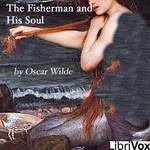 The Fisherman and His Soul
The Fisherman and His Soul
”The Fisherman and his Soul” is a fairy tale first published in November of 1891 in Wilde’s “A House of Pomegranates”. It tells of a fisherman who nets and falls in love with a mermaid. But to be with her he must shed his soul, which goes off to have adventures of its own. Will forbidden love endure? | |
By: G. K. Chesterton (1874-1936) | |
|---|---|
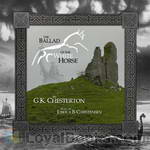 The Ballad of the White Horse
The Ballad of the White Horse
An English epic poem that follows the exploits of Alfred the Great in his defense of Christian civilization in England from the heathen nihilism of the North. Following a string of defeats at the hands of the invading Danes, a vision from heaven in the river island of Athelney fills Alfred with joy and hope. Though it gives no promise of victory in the coming struggle, it inspires him to rally his chieftains for a last stand against the invading hordes. His adventures lead throughout the country... | |
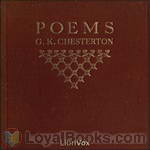 Poems
Poems
Originally published in 1916, this book of poetry by G.K. Chesterton includes 59 poems on a variety of subjects. Included in this are war poems, love poems, religious poems, ballades and more. | |
By: Louisa May Alcott (1832-1888) | |
|---|---|
 Flower Fables
Flower Fables
Flower Fables is Louisa May Alcott’s first book, penned at 16 for Ralph Waldo Emerson’s daughter, Ellen. | |
By: Edgar Allan Poe (1809-1849) | |
|---|---|
 The Raven
The Raven
When a modern film script draws inspiration from a poem written more than a century ago, readers can judge its impact on our collective imagination. Such is the resonance of the poem "The Raven" by Edgar Allan Poe. First published in 1845, "The Raven" is a masterpiece of atmosphere, rhythmic quality and use of language. Constructed in narrative form, it tells the story of a young man who is mourning the loss of his beloved. One December night as he wearily sits up browsing through a classical volume, a mysterious tapping against his window disturbs him... | |
By: James Joyce (1882-1941) | |
|---|---|
 Chamber Music
Chamber Music
Chamber Music is a collection of poems by James Joyce, first published in May of 1907. The collection originally comprised thirty-four love poems, but two further poems were added before publication (”All day I hear the noise of waters” and “I hear an army charging upon the land”). Although the poems did not sell well, they received some critical acclaim. Ezra Pound admired the “delicate temperament” of these early poems, while Yeats described “I hear an army charging upon the land” as “a technical and emotional masterpiece”... | |
By: George MacDonald (1824-1905) | |
|---|---|
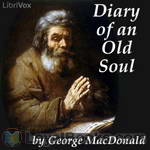 Diary of an Old Soul
Diary of an Old Soul
George MacDonald, a Scottish pastor, wrote these short poems, one for each day of the year, to help him with the severer misfortune he was experiencing. The poems are filled with hope and promises of Christ, yet, he also writes about his doubts. These poems are wonderful to listen to for people of any religion. | |
By: Friedrich Nietzsche | |
|---|---|
 The Joyful Wisdom
The Joyful Wisdom
The Joyful Wisdom (later translated as The Gay Science), written in 1882, just before Zarathustra, is rightly judged to be one of Nietzsche’s best books. Here the essentially grave and masculine face of the poet-philosopher is seen to light up and suddenly break into a delightful smile. The warmth and kindness that beam from his features will astonish those hasty psychologists who have never divined that behind the destroyer is the creator, and behind the blasphemer the lover of life. In the retrospective... | |
By: Jean de La Fontaine (1621-1695) | |
|---|---|
 Fables in Rhyme for Little Folks
Fables in Rhyme for Little Folks
Several of La Fontaine’s fables, translated into English by W. T. Larned. | |
 Old Man and the Ass
Old Man and the Ass
LibriVox volunteers bring you 8 recordings of The Old Man and the Ass by Jean de La Fontaine. (There was no translator acknowledged in the text.) This was the Weekly Poetry project for July 7, 2013.Jean de La Fontaine was the most famous French fabulist and one of the most widely read French poets of the 17th century. He is known above all for his Fables, which provided a model for subsequent fabulists across Europe and numerous alternative versions in France, and in French regional languages.According to Flaubert, he was the only French poet to understand and master the texture of the French language before Hugo... | |
By: Walt Whitman (1819-1892) | |
|---|---|
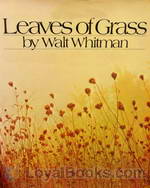 Leaves of Grass
Leaves of Grass
Nearly 160 years after it was first published, Walt Whitman's Leaves of Grass continues to inspire, enthrall and educate generations of readers. This collection of poems serves as a vehicle for Whitman's philosophy, ideals, love of nature and mystical musings and it subsequently became one of the corner stones of American literature. Whitman was inspired to write Leaves of Grass based on Ralph Waldo Emerson's clarion call for a truly American poet who would tell of its glories, virtues and vices... | |
 Specimen Days
Specimen Days
Specimen Days is essentially the great American poet Walt Whitman’s scrap book. It documents most of his life’s adventures, espeically his experience serving as a nurse during the Civil War and travelling around America. | |
 Song of the Broad-Axe - stanza 4
Song of the Broad-Axe - stanza 4
This Weekly Poem is an excerpt from Song of the Broad-axe (4th Stanza) by Walt Whitman, who was an American poet, essayist and journalist. A humanist, he was a part of the transition between transcendentalism and realism, incorporating both views in his works. Whitman is among the most influential poets in the American canon, often called the father of free verse. | |
By: Edith Nesbit (1858-1924) | |
|---|---|
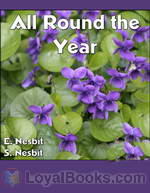 All Round the Year
All Round the Year
A light and whimsical collection of poems by the celebrated children’s author E Nesbit, in collaboration with Saretta Nesbit. | |
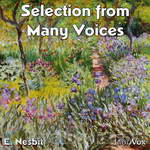 Many Voices (selection from)
Many Voices (selection from)
E. Nesbit (Edith Bland) was a prodigious 19th century children’s writer who produced over 60 books of fiction for children. This book of poems has many elements which would appeal to children but there’s also some exploration of her feelings of love, lust and longing which your average 10 year old would find downright yucky. There are also moments of joy, moments of sugary sweetness and moments of sharp insight in this collection which contains views from many angles. Recurring themes of love, death, gardens and fairies give us a fine insight into the lively imagination of E. Nesbit. Summary by Jim Mowatt. | |
By: William Blake (1757-1827) | |
|---|---|
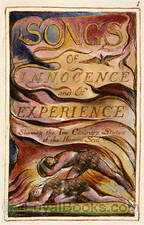 Songs of Innocence and Experience
Songs of Innocence and Experience
“Tiger, tiger, burning bright/In the forests of the night/ What immortal hand or eye/ Could frame thy fearful symmetry?” These often quoted lines are part of The Tiger in William Blake's Songs of Innocence and Experience. In 1789, William Blake released a limited edition of the book. Being a gifted artist, poet and printmaker, he undertook to personally publish all his work himself through a very painstaking but highly artistic process of etching, thereby transferring his drawings and poems individually onto copper plates by hand... | |
 Poems of William Blake
Poems of William Blake
Songs of Innocence and of Experience: Shewing the Two Contrary States of the Human Soul are two books of poetry by the English poet and painter, William Blake. Although Songs of Innocence was first published by itself in 1789, it is believed that Songs of Experience has always been published in conjunction with Innocence since its completion in 1794. Songs of Innocence mainly consists of poems describing the innocence and joy of the natural world, advocating free love and a closer relationship with God, and most famously including Blake’s poem The Lamb... | |
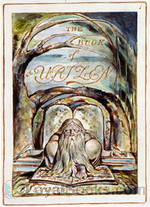 The First Book of Urizen
The First Book of Urizen
The Book of Urizen is one of the major prophetic books of the English poet William Blake, illustrated by Blake’s own plates. It was originally published as The First Book of Urizen in 1794. Later editions dropped the word “first”. The book takes its name from the character Urizen in Blake’s mythology, who represents alienated reason as the source of oppression. The book describes Urizen as the “primeaval priest”, and describes how he became separated from the other Eternals to create his own alienated and enslaving realm of religious dogma... | |
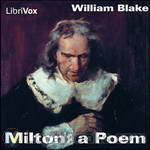 Milton: a Poem
Milton: a Poem
Milton: a Poem is an epic poem by William Blake, written and illustrated between 1804 and 1810. Its hero is John Milton, who returns from heaven and unites with Blake to explore the relationship between living writers and their predecessors. While on earth, Milton also unites with his feminine aspect, Ololon. The poem describes progress toward the apocalyptic union of living and dead, internal and external reality, and male and female. . | |
By: Stephen Crane (1871-1900) | |
|---|---|
 War is Kind (collection)
War is Kind (collection)
Published in 1899, just a year before his death, War Is Kind by Stephen Crane evokes again the dark imagery of war which made his fortune in The Red Badge Of Courage. Unlike that book, this collection leaves the battlefield itself behind to explore the damage war does to people’s hearts and minds. Reeking of dashed hopes, simultaneously sympathetic with the victims of war and cynical about the purposes of war, Crane implicitly criticizes the image of the romantic hero and asks if Love can survive... | |
By: Plato (428-347) | |
|---|---|
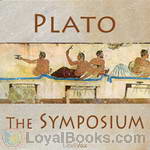 The Symposium
The Symposium
The Symposium (Ancient Greek: Συμπόσιον) is a philosophical book written by Plato sometime after 385 BCE. On one level the book deals with the genealogy, nature and purpose of love, on another level the book deals with the topic of knowledge, specifically how does one know what one knows. The topic of love is taken up in the form of a group of speeches, given by a group of men at a symposium or a wine drinking party at the house of the tragedian Agathon at Athens. Plato constructed the Symposium as a story within a story within a story... | |
By: Edmund Spenser (1552?-1599) | |
|---|---|
 Amoretti: A sonnet sequence
Amoretti: A sonnet sequence
The Amoretti (meaning little love poems) is a sequence of 89 sonnets written in the tradition of the Petrarchan sonnets, a popular form for poets of the Renaissance period. Spenser’s sequence has been largely neglected in modern times, while those of his contemporaries William Shakespeare and Sir Philip Sidney have been acclaimed. However, because of the artistic skill, along with the emotion and the humor exhibited, these poems deserve a broader hearing, even though they may be somewhat difficult for the present-day reader, partly through Spenser’s love for words and expressions that were already archaic in his time... | |